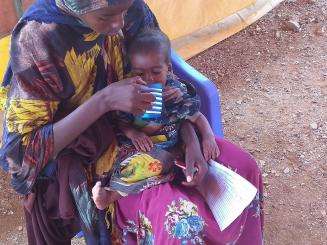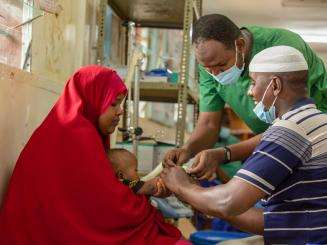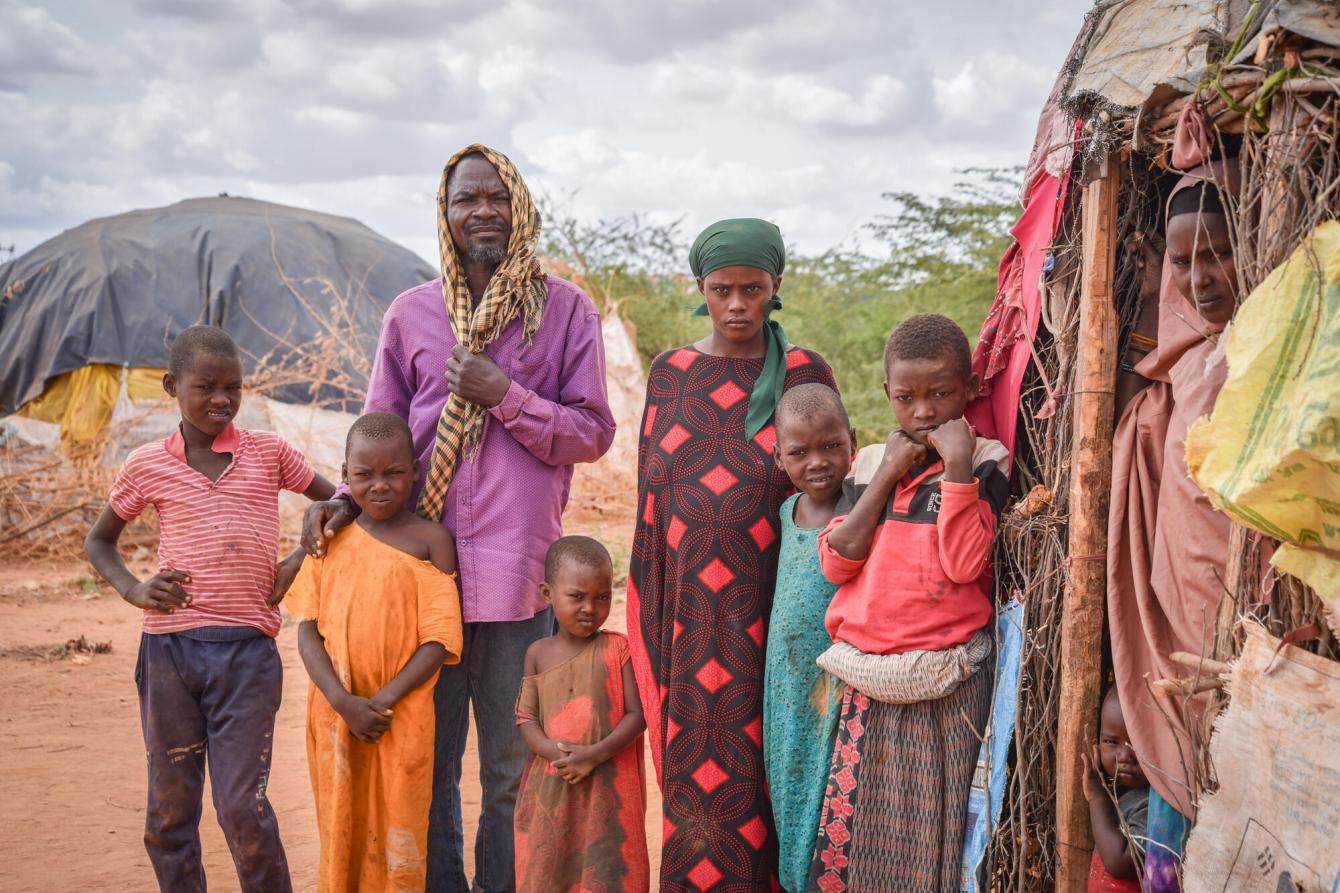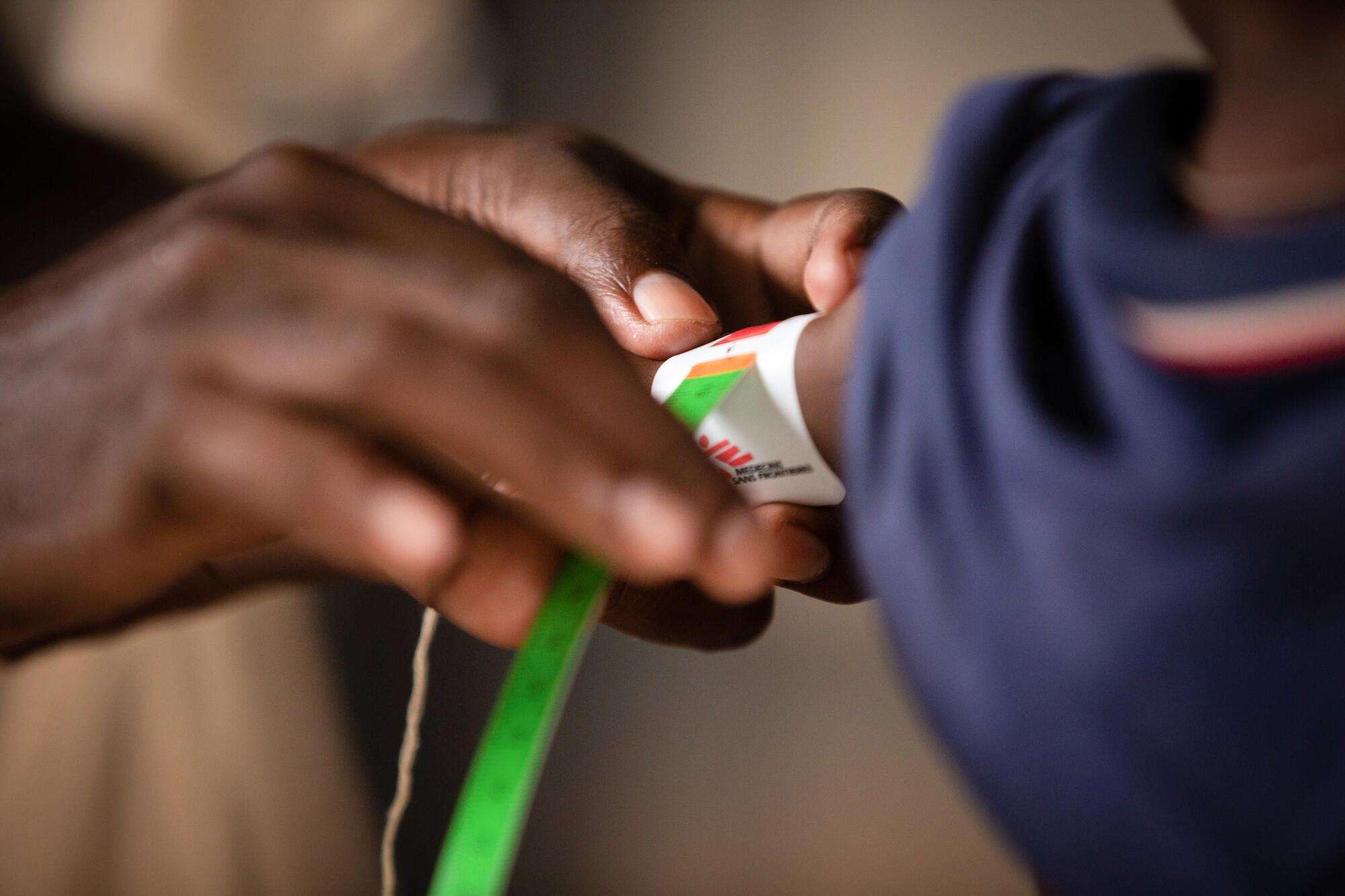NAIROBI/NEW YORK, January 24, 2023—Humanitarian conditions are deteriorating in the Dagahaley refugee camp in northeastern Kenya, the international medical humanitarian organization Doctors Without Borders/Médecins Sans Frontières (MSF) warned today, reporting a sharp increase in the number of children treated for malnutrition.
Dagahaley is part of the decades-old Dadaab camp complex which predominantly hosts refugees from Somalia. People have continued to arrive in large numbers over the past year, as ongoing conflict and a devastating multiyear drought force them to leave their homes in search of food and water. There are now more than 233,000 registered refugees and more than 80,000 unregistered refugees in the overcrowded camps, more than 50,000 of whom arrived in 2022.
October 12 03:08 PM
Five facts about the crisis in Somalia
Displacement, drought, malnutrition, and disease outbreaks are fueling a humanitarian emergency in Baidoa.
Read More
Last year, MSF saw an alarming surge in child admissions in its pediatric ward and inpatient therapeutic feeding center in Dagahaley. In total, MSF treated a record 12,007 patients in these medical facilities in 2022, the overwhelming majority of whom were children, representing a 33 percent increase from 2021. MSF's data also show an increasing trend in the global acute malnutrition rate among children in Dagahaley, which reached 8 percent during screening in December 2022, up from about 5.5 percent in July 2022.
Several complex factors are aggravating the humanitarian situation in Dagahaley and stretching the health care capacity in the camp. A cholera outbreak, declared in late October 2022, has gripped the Dadaab camps as well as communities in Garissa and Wajir counties. Scarce humanitarian funding adds further pressure, deepening widespread gaps in vital services including water, sanitation and hygiene, nutrition, health, and protection.
"A marked increase in malnutrition among children, coupled with disease outbreaks in the camp, is an extremely worrying sign that living conditions in Dadaab have significantly deteriorated over the last months," said Hassan Maiyaki, MSF’s country director in Kenya. "But the humanitarian response is falling far short as humanitarian agencies confront funding shortfalls. If the response is not stepped up now, we might soon be staring at a breaking point."
October 24 01:32 PM
Increased aid and vaccinations needed for refugees in Kenya's Dadaab camp
MSF calls for measles and cholera vaccinations to prevent a wider emergency.
Read More
Worryingly, forecasts paint a grim outlook for refugees this year. The United Nations Office for the Coordination of Humanitarian Affairs has predicted a sixth consecutive failed rainy season from March to May 2023, exacerbating the scale and severity of the humanitarian emergency in the Horn of Africa. Humanitarian organizations are concerned about expected funding cuts for refugees, which would force them to further reduce operations at a time when needs are rising fast.
MSF, in coordination with the host community and humanitarian actors, has stepped up its emergency support beyond comprehensive health care in Dagahaley camp. MSF has opened two medical outposts, built 50 latrines, put in place two water tanks and distributed plastic sheeting and floor mats for some 800 newly arrived families residing on the outskirts of the camp.
Despite MSF’s efforts to target the most vulnerable refugees living on the fringes of Dagahaley camp, the current humanitarian crisis urgently requires a broader response to avert further deterioration.

MSF calls on humanitarian donors to rapidly release funding critical to meeting surging needs for life-saving assistance and protection. The UN Refugee Agency UNHCR has made appeals to donors to mobilize resources for the reopening of a camp in Dadaab that was initially closed in 2018, the Ifo 2 site. This camp is needed to accommodate up to 80,000 refugees from the already congested camps ahead of the approaching dry season, when more people are expected to make their way into Dadaab.
Unless urgent appeals for funding are answered and additional humanitarian aid is provided soon, the incoming influx of refugees could tip the crisis beyond the levels that humanitarian organizations can manage with the currently allocated resources.
Refugees in Dadaab have been locked in a 30-year protracted emergency. Even as the immediate priority is to respond to the escalating needs in the camps, it is equally vital to implement the durable solution agenda for refugees, as embedded in the Kenyan legal framework, notably the 2022 Refugee Act.
MSF has been delivering health care in and around Dadaab for most of the camp’s 30-year existence. Our current programs are focused in Dagahaley camp, where we provide comprehensive health care to refugees and host communities, including basic and specialized care through two health posts and a 92-bed hospital. Our medical services include treatment for malnutrition, sexual and reproductive health care, emergency obstetrical surgeries, medical and psychological assistance to survivors of sexual and gender-based violence, mental health care, home-based insulin care, and palliative care.




